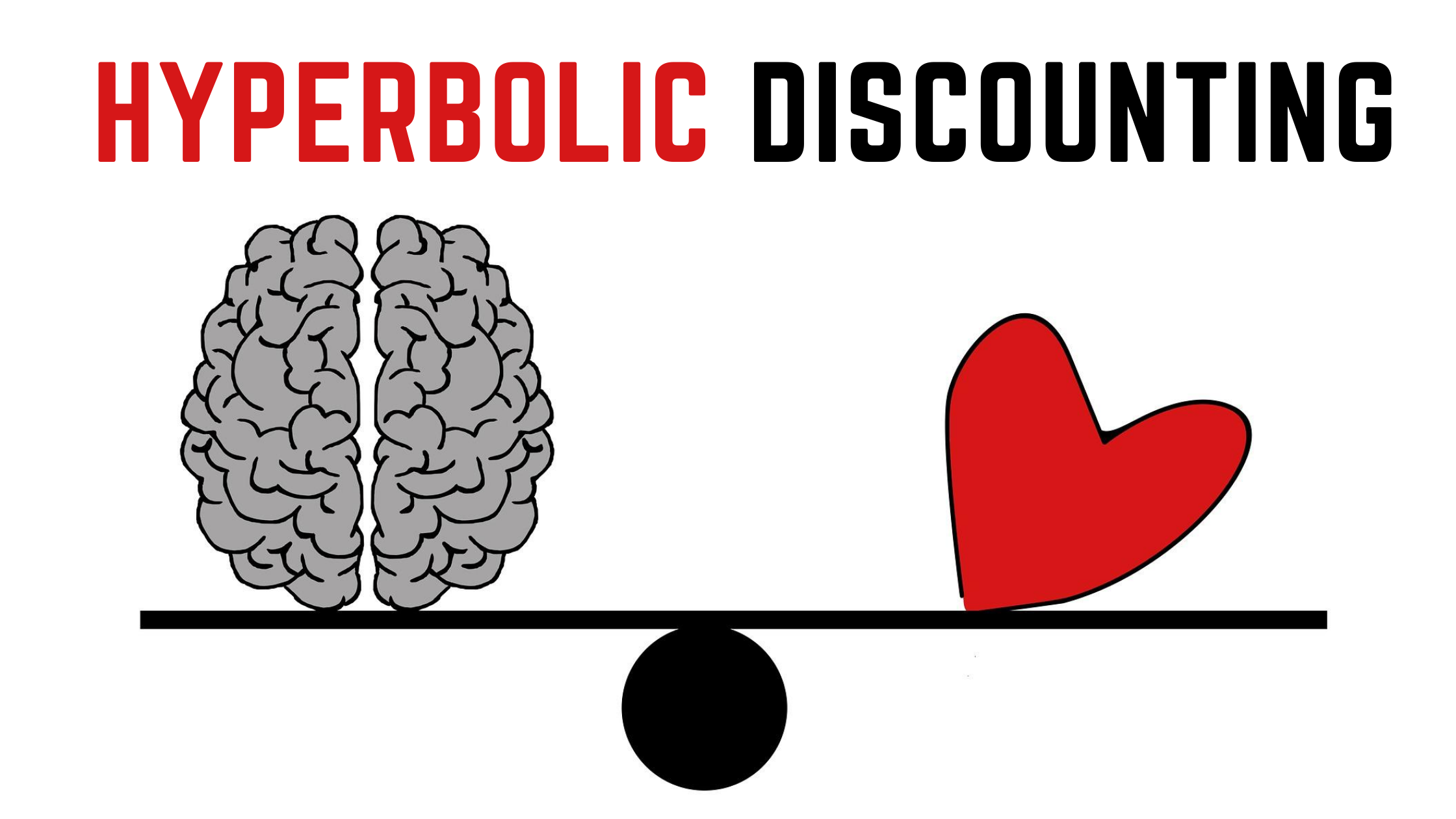Hyperbolic Discounting: Why Do We Make Irrational, Impulsive Decisions?

- Depending on the point in time a reward is received, humans value them differently.
- Humans are impatient by nature in the short-run.
- Humans become more patient over the long-run.
- Hyperbolic discounting makes for inconsistent decision-making.
- Hyperbolic discounting can affect your personal and professional life.
Sometimes it feels like your heart and your brain are two different decision-makers. Your heart makes irrational, impulsive decisions, and your mind is the logical decision-maker. Sometimes the two come together to make for wildly inconsistent decision-making behavior.
Now imagine you’re standing in line at a grocery store and seeing a chocolate bar you want. You go to pick it up, but the cashier tells you that if you wait until next week, you can get two candy bars for the price of one. That sounds like a great deal, right? Unfortunately, you don’t have the patience to wait until next week for two candy bars, so you opt to buy the candy bar now, much to the cashier’s confusion. The cashier tells you that you’re discounting the value of the additional candy bar next week.
This is called hyperbolic discounting.
What Is Hyperbolic Discounting?
Hyperbolic discounting sounds like a funny, made-up word, but there’s an easy way to explain it. Humans are inherently selfish and want instant gratification. We put more value on immediate rewards than we do on later rewards, even though the latter is more valuable.
When you read the candy bar example from before, you probably thought to yourself, “I’m different. I’m a patient person and would wait for the second candy bar next week.” Unfortunately, you’re not always going to make that decision because hyperbolic discounting is a cognitive bias. Cognitive biases are just habits or patterns in our thinking that make us repeatedly conclude the wrong things. You don’t think about it because it’s done subconsciously and considered a part of human nature and brain wiring.
The same person who says they’ll wait for the candy bar might change their mind when the example is set to money. Imagine you won a $100 cash prize at a contest, but there’s a catch: you can take the $100 now, or you can take $200 tomorrow. No one in their right mind would take the $100 now. However, if the contest host were to tell you that you can have the $100 now or receive $200 in three months, you’re more than likely going to take the $100 now. What changed?
The value of the rewards didn’t change at all, but why are you willing to wait one day as compared to three months for the same reward? This irrational way of thinking follows a hyperbola, which means that the value doesn’t matter after a certain amount of time. For example, if you were given a choice between the $100 cash prize in four months or the $200 cash prize in eight months, you’re most likely to wait the eight months because the time value doesn’t matter anymore. After all, it’s not instant. It’s wildly inconsistent.
Hyperbolic Discounting Can Affect Your Personal Decision-Making
Getting candy bars or cash is sweet, but hyperbolic discounting can also apply to your personal decision-making. In other words, hyperbolic discounting can explain procrastination. Imagine you have a project coming up. No one starts a project the day they are assigned it. You’re going to go home and relax while thinking about how you’re going to finish the project later. Your immediate reward was relaxation, but you’re putting more value on relaxing than the rewarding feeling of completing the project now. We can just make the term “cognitive bias” a scapegoat for this.
Think about that the next time your boss reminds you of an upcoming deadline.

Recent Comments